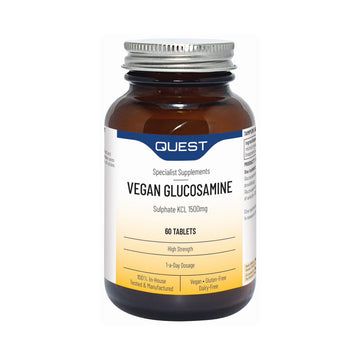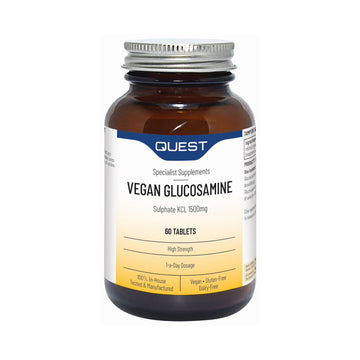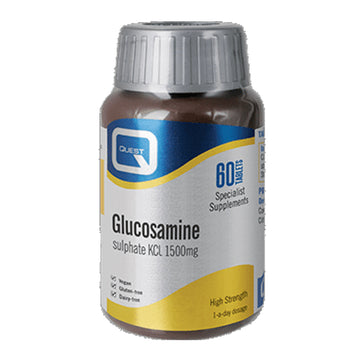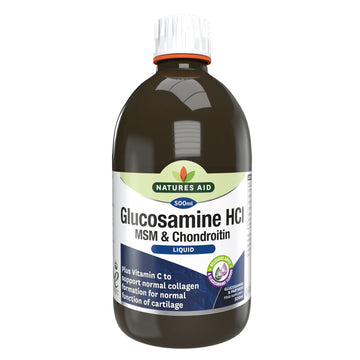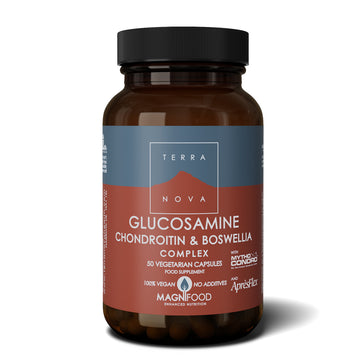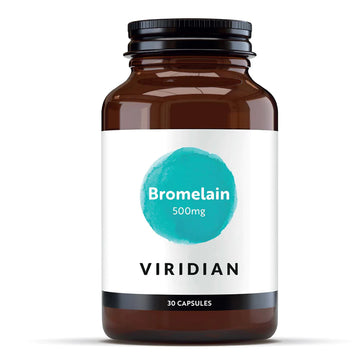Much importance is often placed on bone strength and calcium intake, but we often forget that our joints are just as important. So today we're focusing on them with the best supplements for healthy joints. Your joints get a lot of wear and tear day in day out which can cause stiffness, pain, mobility issues and can aggravate conditions such as arthritis. But there are some things you can do to help keep your joints supple. We've got some useful tips below plus the best supplements for joint health.
Tips to Keep Your Joints Supple
Here are a few top tips on how you can help keep joints healthy and supple:
- Try to avoid too much refined sugar
- Keep intake of saturated fats to a minimum
- Increase intake of Omega Oil through seeds, nuts, fatty fish and vegetables
- Increase overall intake of vitamins and minerals with a good multivitamin
- Avoid excessive protein intake
- Check out and eliminate food allergies
Best Supplements for Healthy Joints
Looking to pick up the best supplements for healthy joints? Here's our pick of the bunch.
Glucosamine Sulphate
One of the best supplements for healthy joints, in particular arthritis is Glucosamine. Glucosamine is an amino acid which is found around our joints. It is formed in our tissues from glucose and glutamic acid. It is the starting point for the making of many important tissue structures such as cartilage, tendons and ligaments and can help your joints become strong and remain that way.
Age, injury and disease all deplete the body's level of glucosamine. This can cause the stiffening and pain commonly experienced by sufferers of rheumatoid arthritis, and the deterioration of the joints themselves. By supplementing our diet, we could increase our body's ability to supply vital building materials for replacing worn out cells and tissues.
Our joints, ligaments, tendons and bones are dependent on glucosamine for repair and regeneration. Supplementing can result in well-lubricated joints, healthy synovial fluid and a reduced risk of cartilage breakdown.
How much glucosamine should you take?
So, how much glucosamine should you take, to try and combat the effects of arthritis? Take 1,500 mg once a day, or in three separate doses if you’re especially prone to indigestion or an upset stomach. As with most supplements, the effects aren’t instant. You should begin to feel the joints beginning to loosen up somewhat within the first 3-6 weeks, provided you stick to this dosage.
With some nutritional additions, there can be concerns over side effects, especially where one has a shellfish allergy. In cases such as this, we would recommend glucosamine hydrochloride, as it means that the consumer can still receive the benefits of well-lubricated joints without having to trigger their allergies.
Chondroitin Sulphate
Chondroitin Sulphate is a mucoplysaccharide - a major component of connective tissues such as cartilage, tendons, ligaments and bones. In order to maintain the optimum functionality of these tissues, adequate levels of chondroitin are essential.
It is also helpful to lubricate the joints and act as a shock absorber by attracting fluid into the cartilage molecules. As with glucosamine, age or injury can impair the body's ability to produce chondroitin.
Bromelain
Another of our top supplements for healthy joints is Bromelain. Bromelain is an enzyme derived from pineapple and is thought to inhibit inflammation. It is also believed to help break down immune complexes which may otherwise trigger arthritic symptoms. It has also been shown to speed up the healing time of injuries to tissues.
Collagen
Collagen is not just for beauty; Collagen supplements support joint health by providing the body with additional collagen, a protein essential for maintaining the structure and function of joints. Collagen can help support the maintenance and repair of cartilage, reduce joint inflammation, improve joint function and mobility, and strengthen tendons and ligaments.
Antioxidants
Antioxidants such as vitamins A, C and E and selenium may help to protect cartilage from being destroyed by free radicals. They may also help with the production of new cartilage. Deficiencies in various antioxidant nutrients are often observed in cases of arthritis.
Quercetin is a bioflavonoid which has been found to display a powerful anti-inflammatory effect by inhibiting the production of leukotrienes and the release of histamines. Quercetin is also an effective antioxidant and may also help to stabilise collagen, which is needed for proper integrity of joint tissue.
Please note, this blog is for informational purposes only and should not replace medical advice.
It’s always best to consult your doctor before taking any new supplements, treatments or remedies if you are pregnant, breastfeeding or on medication.
Do you want to know about joint health? Read of blog 'Common Joint Complaints & How to Treat' here.
Checked and updated: 15 August 2023



